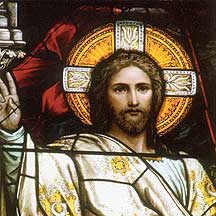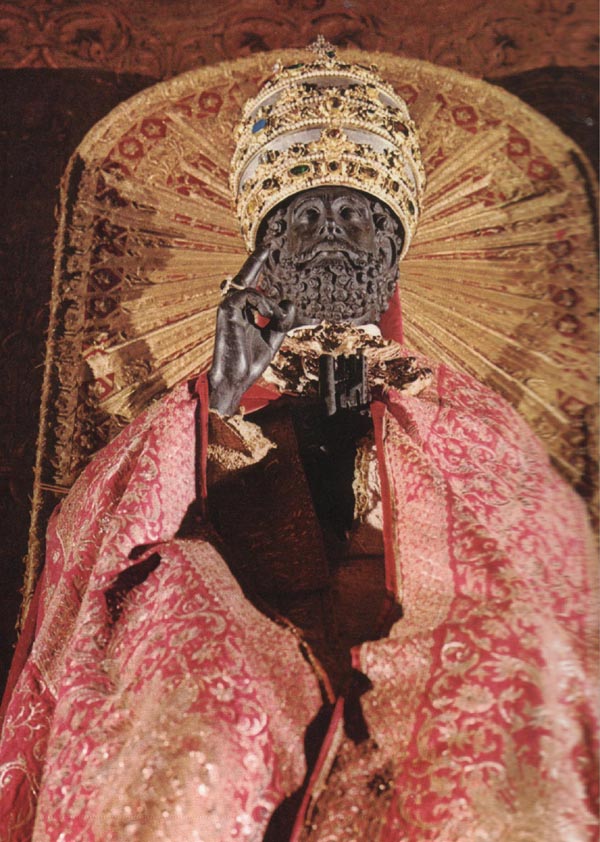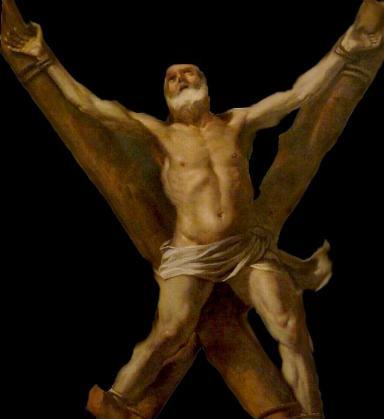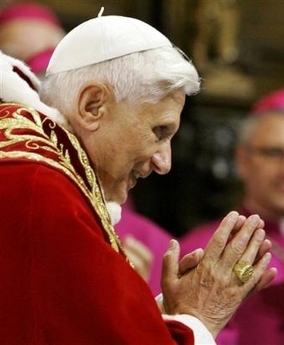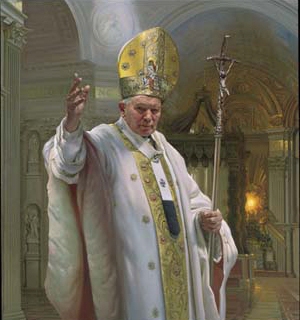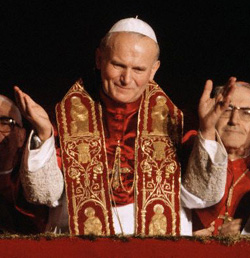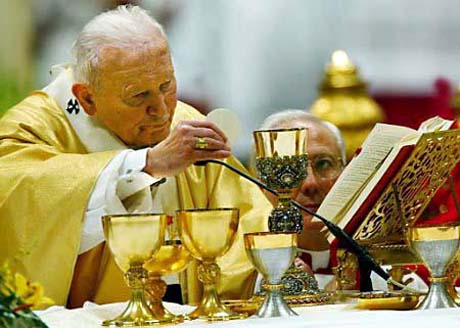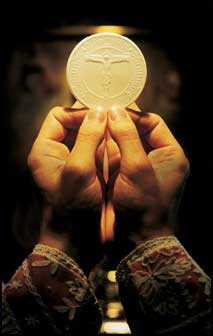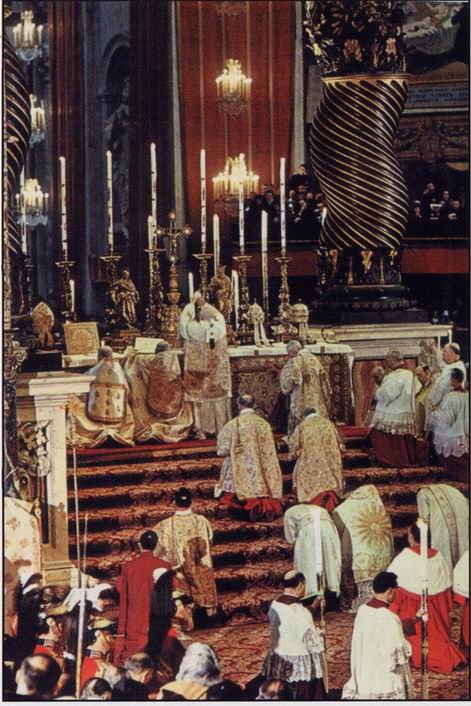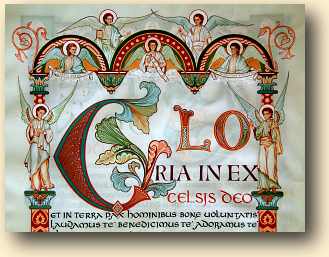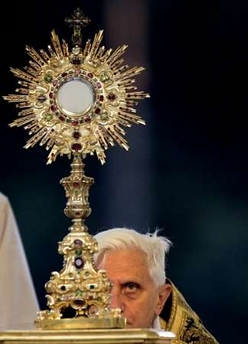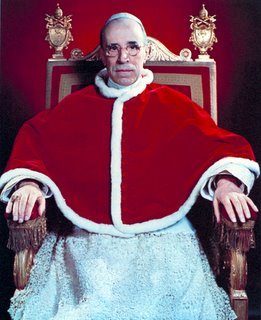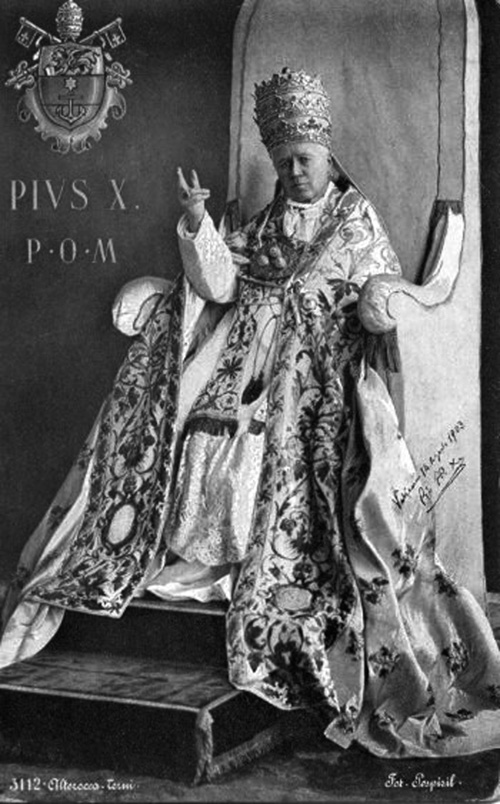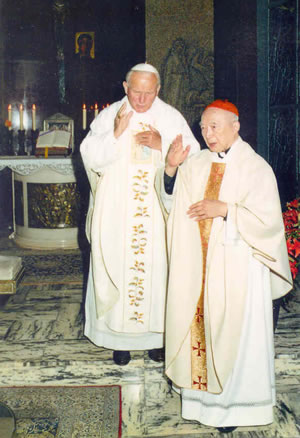Dear Takamasa Ishihara (no, not the famous Miyavi, he's more of a Myvi) recounts the first part of his conversion experience. Do go and say hi.

(NOT Miyavi)

Myvi




 Similarly, making the sign of the Cross in public, especially when we pass by a Church. It reminds ourselves and others of the Presence that dwells within those walls. It's not an easy thing to do. It draws attention. And for many of us, the last thing we want to do is to draw attention to ourselves. Especially when you're an adolescent. I can relate to that. When I was a kid, I was taught to make the sign of the Cross when passing by a Church. When I grew older, the gestures became smaller and faster until it was no more than a small sign made by my fingers over my heart (when no one was looking). However, one day, when I was taking the bus, I noticed a lady making a prominent sign of the Cross as we passed a Church, and everyone was looking. I remembered feeling very very ashamed, for being ashamed. I was ashamed of the sign of the Cross, ashamed of what others might think and in so doing, forgot how my Lord must have felt to see me 'deny' Him in public.
Similarly, making the sign of the Cross in public, especially when we pass by a Church. It reminds ourselves and others of the Presence that dwells within those walls. It's not an easy thing to do. It draws attention. And for many of us, the last thing we want to do is to draw attention to ourselves. Especially when you're an adolescent. I can relate to that. When I was a kid, I was taught to make the sign of the Cross when passing by a Church. When I grew older, the gestures became smaller and faster until it was no more than a small sign made by my fingers over my heart (when no one was looking). However, one day, when I was taking the bus, I noticed a lady making a prominent sign of the Cross as we passed a Church, and everyone was looking. I remembered feeling very very ashamed, for being ashamed. I was ashamed of the sign of the Cross, ashamed of what others might think and in so doing, forgot how my Lord must have felt to see me 'deny' Him in public. 








 When people think of the Church, in it's pre and post-conciliar forms, the images below, of a Papal Mass in the Traditional Latin Rite celebrated by the optimistic Blessed Pope John XXIII and a clown Mass in the Novus Ordo are often what comes to mind.
When people think of the Church, in it's pre and post-conciliar forms, the images below, of a Papal Mass in the Traditional Latin Rite celebrated by the optimistic Blessed Pope John XXIII and a clown Mass in the Novus Ordo are often what comes to mind.

 You know this, you're not stupid. What then can you, a mere layperson do? That's a good question and one that I asked myself, many many moon ago when I was less old. In this series of posts, I hope to provide some concrete ideas of what you (who we shall call a Papal Ninja because you're quick, fast, agile and effective, working in secret behind the scenes) can do. We shall stick to the doable, in the here and the now.
You know this, you're not stupid. What then can you, a mere layperson do? That's a good question and one that I asked myself, many many moon ago when I was less old. In this series of posts, I hope to provide some concrete ideas of what you (who we shall call a Papal Ninja because you're quick, fast, agile and effective, working in secret behind the scenes) can do. We shall stick to the doable, in the here and the now.
 Let our plan be a smart plan. Specific, Measurable, Achievable, Realistic and Time-bound. We are not Pope, or Cardinal Prefect or Archbishop or Bishop. We are not in Holy Orders and neither do we walk the Corridors of Power as movers as shakers. But besides offering up our prayers and sufferings in a spirit of reparation and asking the Lord to help us (which is indeed essential! and of the utmost importance and must never be forgotten or set aside no matter how 'busy' we think we are) let us take the words of Our Lord to heart when the told His Apostles: "You give them something to eat yourselves".
Let our plan be a smart plan. Specific, Measurable, Achievable, Realistic and Time-bound. We are not Pope, or Cardinal Prefect or Archbishop or Bishop. We are not in Holy Orders and neither do we walk the Corridors of Power as movers as shakers. But besides offering up our prayers and sufferings in a spirit of reparation and asking the Lord to help us (which is indeed essential! and of the utmost importance and must never be forgotten or set aside no matter how 'busy' we think we are) let us take the words of Our Lord to heart when the told His Apostles: "You give them something to eat yourselves".  Hope for the future: Dresden today.
Hope for the future: Dresden today. The rebuilt and restored Stalhof and a general view of the City of Dresden today.
The rebuilt and restored Stalhof and a general view of the City of Dresden today.
Polish Catholics see miracle in communion wafer
By VANESSA GERA
Associated Press
Roman Catholics in Poland gathered Sunday for a special Mass celebrating what they see as a miracle: the appearance on a communion wafer of a dark spot that they are convinced is part of the heart of Jesus.The communion wafer in question developed a brown spot in 2008 after falling on the floor during a Mass in the eastern Polish town of Sokolka. Two medical doctors determined that the spot was heart muscle tissue, church officials have said.
Bialystok Archbishop Edward Ozorowski said during the Mass that in history, the "substance of Christ's body or blood has become available to the human senses, and this also happened in Sokolka."
"For God, nothing is impossible," Ozorowski said.
The dark-spotted wafer was carried aloft in a reliquary by a golden-robed priest in a procession and was put on display in the town's church of St. Anthony as about 1,000 faithful looked on, according to a report and footage carried by the TV station TVN.
Catholics believe that the bread and wine that priests use during the sacrament of communion - or the Eucharist - are changed into the body and blood of Jesus Christ.The nun's discovery sparked huge interest among the faithful in this deeply Roman Catholic country, sparking large numbers to flock to Sokolka. Though some believers consider the object miraculous, the Vatican is still examining the matter and has not yet officially decided whether to declare it a miracle, church spokesman Andrzej Debski said.
A group of rationalists complained about the matter in 2008, and called on authorities to investigate if a murder or other crime was involved if human flesh was indeed found on the wafer. Police say they have no evidence of any crime.

THE OATH AGAINST MODERNISMGiven by His Holiness St. Pius X September 1, 1910.
To be sworn to by all clergy, pastors, confessors, preachers, religious superiors, and professors in philosophical-theological seminaries.I Andrew Khoo, firmly embrace and accept each and every definition that has been set forth and declared by the unerring teaching authority of the Church, especially those principal truths which are directly opposed to the errors of this day. And first of all, I profess that God, the origin and end of all things, can be known with certainty by the natural light of reason from the created world (see Rom. 1:90), that is, from the visible works of creation, as a cause from its effects, and that, therefore, his existence can also be demonstrated:Secondly, I accept and acknowledge the external proofs of revelation, that is, divine acts and especially miracles and prophecies as the surest signs of the divine origin of the Christian religion and I hold that these same proofs are well adapted to the understanding of all eras and all men, even of this time.Thirdly, I believe with equally firm faith that the Church, the guardian and teacher of the revealed word, was personally instituted by the real and historical Christ when he lived among us, and that the Church was built upon Peter, the prince of the apostolic hierarchy, and his successors for the duration of time.Fourthly, I sincerely hold that the doctrine of faith was handed down to us from the apostles through the orthodox Fathers in exactly the same meaning and always in the same purport.Therefore, I entirely reject the heretical' misrepresentation that dogmas evolve and change from one meaning to another different from the one which the Church held previously. I also condemn every error according to which, in place of the divine deposit which has been given to the spouse of Christ to be carefully guarded by her, there is put a philosophical figment or product of a human conscience that has gradually been developed by human effort and will continue to develop indefinitely.Fifthly, I hold with certainty and sincerely confess that faith is not a blind sentiment of religion welling up from the depths of the subconscious under the impulse of the heart and the motion of a will trained to morality; but faith is a genuine assent of the intellect to truth received by hearing from an external source. By this assent, because of the authority of the supremely truthful God, we believe to be true that which has been revealed and attested to by a personal God, our creator and lord.Furthermore, with due reverence, I submit and adhere with my whole heart to the condemnations, declarations, and all the prescripts contained in the encyclical Pascendi and in the decree Lamentabili, especially those concerning what is known as the history of dogmas. I also reject the error of those who say that the faith held by the Church can contradict history, and that Catholic dogmas, in the sense in which they are now understood, are irreconcilable with a more realistic view of the origins of the Christian religion. I also condemn and reject the opinion of those who say that a well-educated Christian assumes a dual personality-that of a believer and at the same time of a historian, as if it were permissible for a historian to hold things that contradict the faith of the believer, or to establish premises which, provided there be no direct denial of dogmas, would lead to the conclusion that dogmas are either false or doubtful.Likewise, I reject that method of judging and interpreting Sacred Scripture which, departing from the tradition of the Church, the analogy of faith, and the norms of the Apostolic See, embraces the misrepresentations of the rationalists and with no prudence or restraint adopts textual criticism as the one and supreme norm. Furthermore, I reject the opinion of those who hold that a professor lecturing or writing on a historico-theological subject should first put aside any preconceived opinion about the supernatural origin of Catholic tradition or about the divine promise of help to preserve all revealed truth forever; and that they should then interpret the writings of each of the Fathers solely by scientific principles, excluding all sacred authority, and with the same liberty of judgment that is common in the investigation of all ordinary historical documents.Finally, I declare that I am completely opposed to the error of the modernists who hold that there is nothing divine in sacred tradition; or what is far worse, say that there is, but in a pantheistic sense, with the result that there would remain nothing but this plain simple fact-one to be put on a par with the ordinary facts of history-the fact, namely, that a group of men by their own labor, skill, and talent have continued through subsequent ages a school begun by Christ and his apostles.I firmly hold, then, and shall hold to my dying breath the belief of the Fathers in the charism of truth, which certainly is, was, and always will be in the succession of the episcopacy from the apostles. The purpose of this is, then, not that dogma may be tailored according to what seems better and more suited to the culture of each age; rather, that the absolute and immutable truth preached by the apostles from the beginning may never be believed to be different, may never be understood in any other way.I promise that I shall keep all these articles faithfully, entirely, and sincerely, and guard them inviolate, in no way deviating from them in teaching or in any way in word or in writing. Thus I promise, this I swear, so help me God.I think many bishops, priests and professors who took this oath have perjured themselves in the revolution that occurred after Vatican II and may God be their judge, for the damage their collective action, and inaction, their abdication of their duty and their sacred trust have caused God's Holy Catholic Church.





